Hadur
Hadur is the God of Family, Community, Creation, and the Element of Earth. He is also the patron of
Dwarves. Hadur's teachings emphasize the importance of family in the lives of Dwarves, with his holy text "
The Forge of Ideas" saying a good life can only happen when one has a good family.
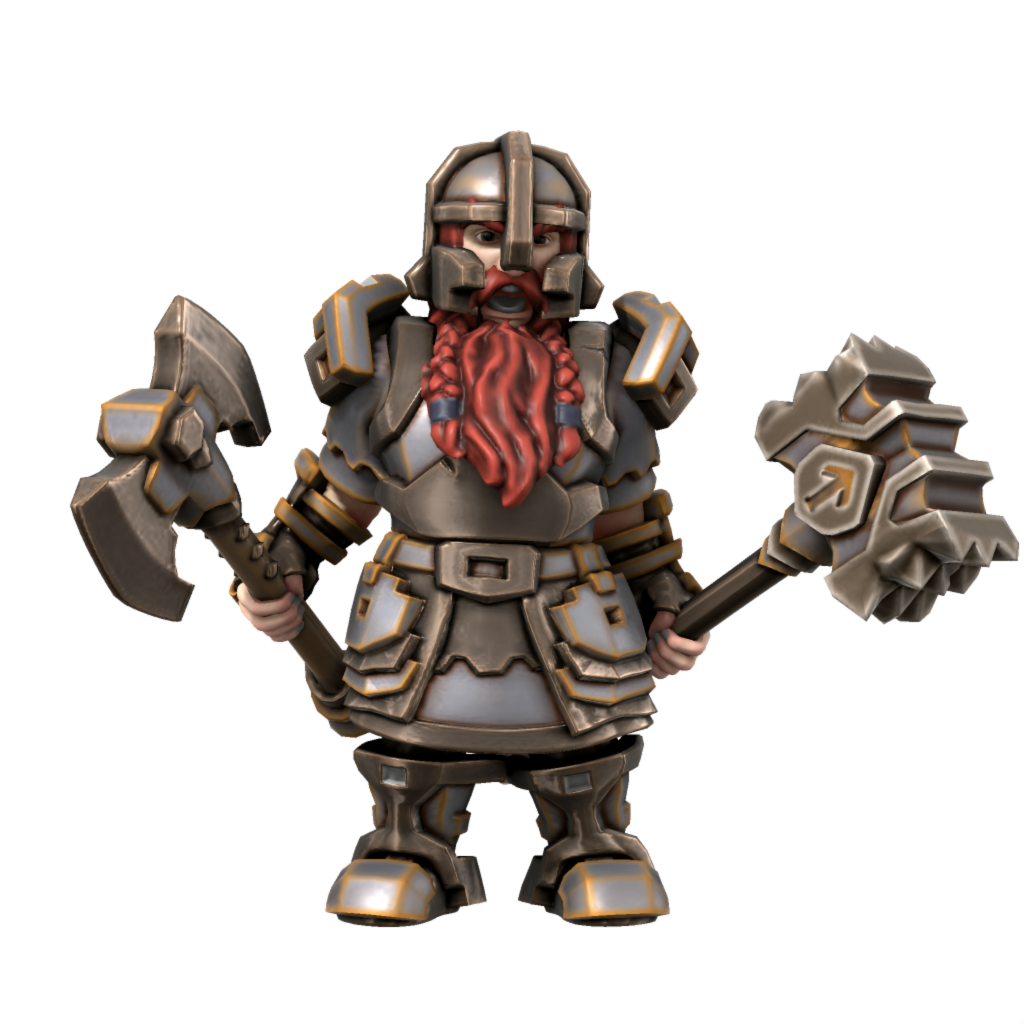
Hadur by Jarhed
Hadur is believed to be the God who created Totania, or at least the earthen part of it. Legend states he forged it in the hottest fires that were ever burned, and shaped it with his hammer until it was a place that he believed could sustain life.
For this, he has the domain of creation, as Hadur not only made the world, but is the patron of things like smithing of weapons and armor.
Ishtar
Ishtar is the Goddess of Fertility and Dreams. Her worship is based in the Human city-state of Alzirgos, but more than almost any other God, Ishtar has followers all over the world.
Her domain is quite prominent among blossoming civilizations and cities, and often when a new settlement is founded, Priests of Ishtar will come to bless the land with good fertility for both the crops and the people.
Ishtar worship revolves around both following one's dreams and ensuring pleasure, and it focuses on pleasure for both partners in a relationship. Ishtar's holy texts, "
The Inner Pleasure of Heaven" even features entire sections of it dedicated to empowering women. Ishtar worship alone is believed to be partially responsible for the equal rights of women in most of Totania thanks to these teachings.
Ninatta
Ninatta is the Goddess of Poetry, Music, and Festivals. For this, she is the patron of most artists that work in performance, such as musicians, actors, and dancers, as well as poets.
She does not have the largest following, as her domains are rather niche, but those that worship her do so in a devoted manner. Worship of her includes various songs, as her holy text "
Sheet Music" is actually comprised of some basic tenets that preface hundreds of pages of music written overtime by her followers. Therefore, it is constantly growing, as new followers add more and more songs to its pages.
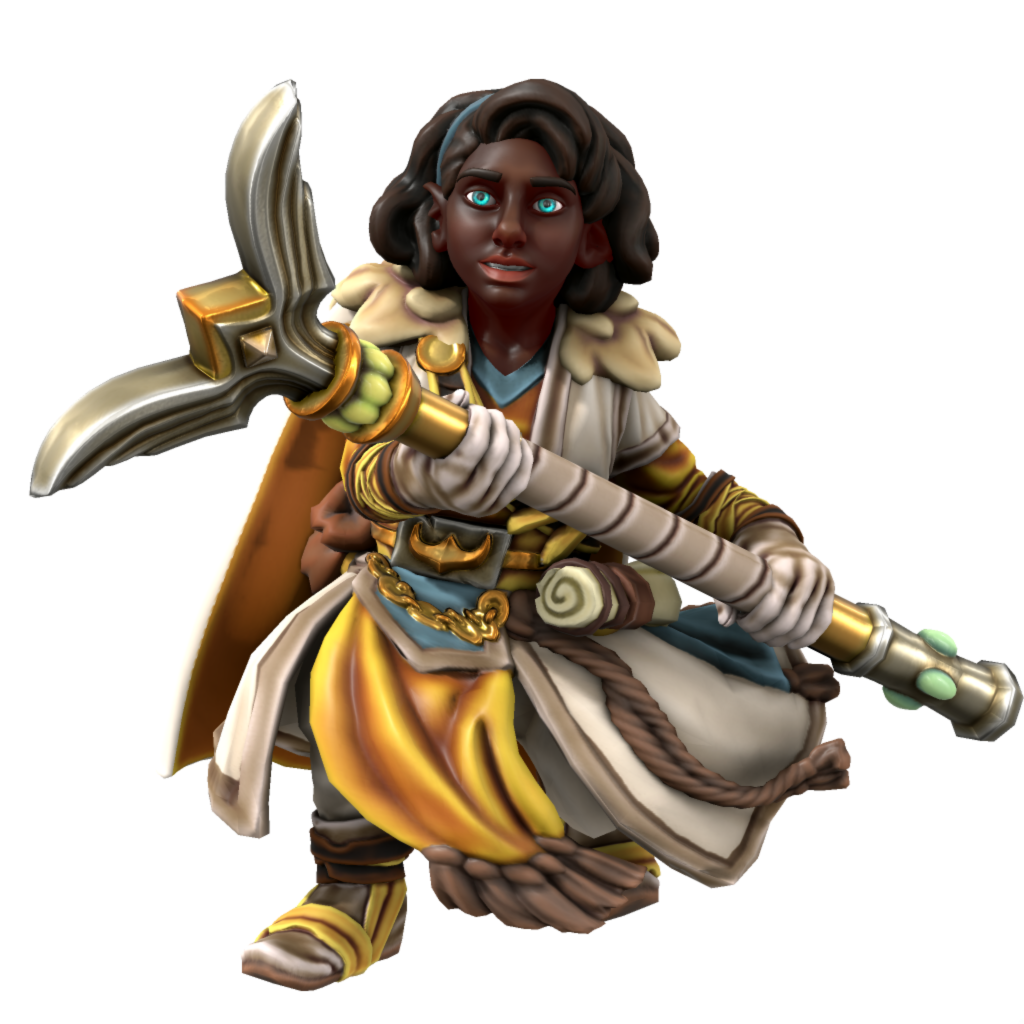
Fortuna by Jarhed
Fortuna
Fortuna is the Goddess of Luck, Travel, Change, and the Element of Air. She is also the patron of Halflings, as Halflings have no devoted home city in Totania, and instead travel to search for their homes.
Fortuna does not have a structural temple, as there is no real way to have a temple dedicated to a traveling Goddess. Therefore, her temple is instead her Head Priest, which allows her the power to manifest only within the body of said Head Priest. Various strange tales speak of the Head Priest of Fortuna opening his mouth and revealing the Goddess herself resting within. Some consider this creepy or strange, while others call it cool.
She has a holy text that promotes travel, known as "
The Brochure."
Amukk
Amukk is the God of Mercy and Beginnings, with some even calling him the true God of Justice. Phrixus, however, formally holds the position still. Amukk is the newest of the Gods, as he only rose to power sometime around the year 0.
Once, Amukk was a humble Orc with lofty goals and ambitions, but upon gaining a holy might, he gained strength and followers until he rose to the challenge and challenged the nameless God of the Giants, who was at that point all-but forgotten.
Since then, he has been on a steady increase of followers, and is becoming a more well-known God around the world. It is believed his Church even has a connection to the
World Court, as his Head Priest Linfire works for them. His Holy Text is known as the "
Rewritten Words" as it is slightly based off of the Nameless God's text.
The Nameless God
The Nameless God was once the God of the Giants, and likely held the positions Amukk now holds. He was killed by Amukk, and few records of him exist aside from ruined statues in the Nereid city of Lorev and the Church of Athena.
Neutral Gods
Neutral Gods and Goddesses are those that do not necessarily have just goals or do anything considered perfectly morally correct, but they are not inherently evil either. This list is generally agreed upon by most religions, though some claim some of these Gods are good or evil rather than neutral. There are eight of these Neutral Gods. These Gods are:
- Selene
- Papatūānuku
- Mayowa
- Leigong
- Sia
- Kadakalan
- Erra
- Janus
Selene
Selene is the Goddess of Illusion, Love, and the Moon. She is patron of Elves, and is known for stealing ideas from other Gods out of jealousy, thus crowning her the "Jealous Goddess."
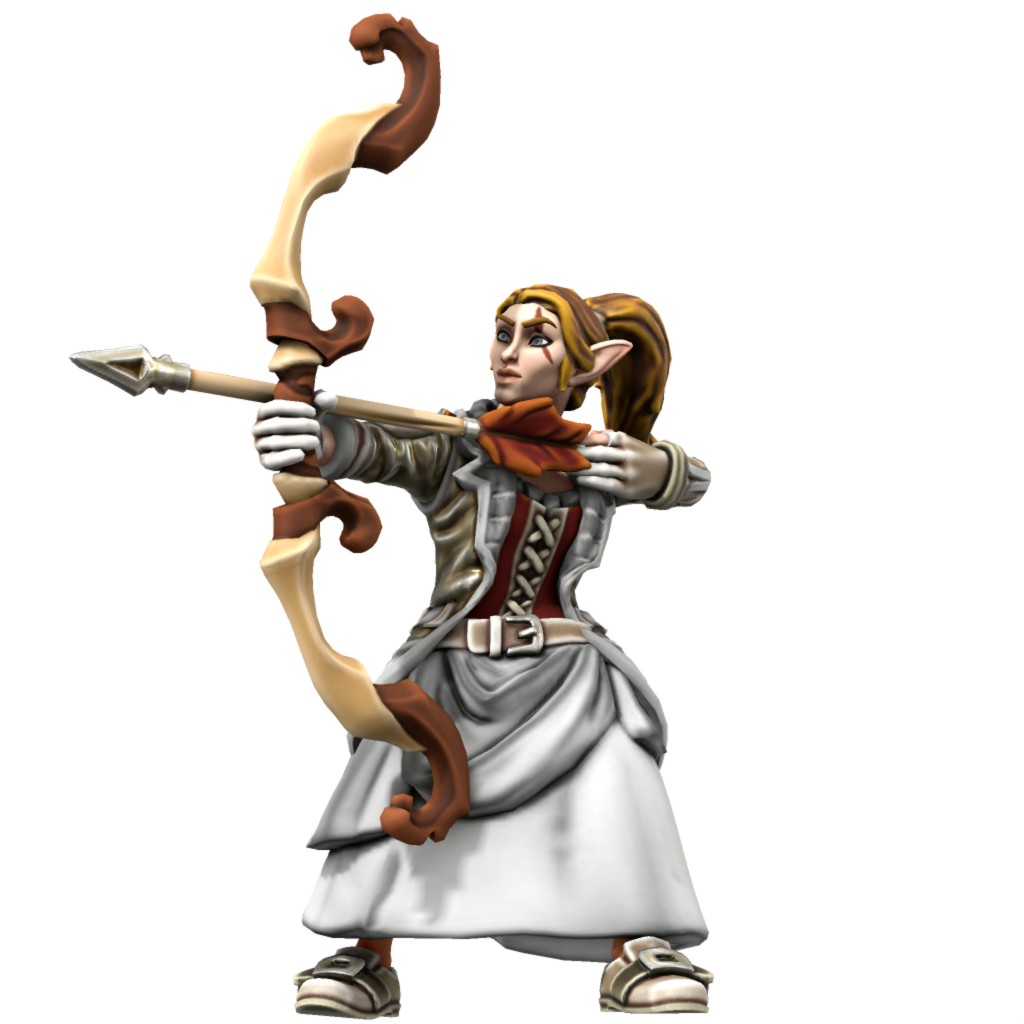
Selene by Jarhed
A major example of something she stole was the moon. She saw Izanagi make his realm of Heaven a satellite of Totania with the sun during the day, so she made one for herself at night. Now, she resides in the Moon and watches over Totania. Her followers worship the Moon with things like the
Lunar Raiding Festival. Thus, her book of worship is called "
Runes of Mene."
Selene also copied Papatūānuku's idea of an ocean after growing jealous of how much traction Papatūānuku had gained among the Gods for creating the sea. This sunk the
Giant Kingdom and created the Northern Sea.
Papatūānuku
Papatūānuku is the Goddes of Nature and the Element of Water. Her domain is in both the forests and the seas, as she was the one to create both vegetation on Totania as well as the first ocean.
Worship of her comes from respecting the plantlife and not harming it, as well as keeping the ocean clean. These are taught in her holy text, "
Suor" Her Temple lies under the sea in Northern Nereid territory, though it was once on land in the Giant Kingdom before Selene sunk it. Selene holds a grudge against Papatūānuku, while Papatūānuku simply appreciates that Selene thinks of her that much.
Mayowa
Mayowa is the Goddess of Beauty, Magic, and Art. She is the creator of the
Magic that people use today, and is patron to the
Shafaians.
Artists worship Mayowa for her views on art, but the religion under her name is more so devoted to the inherent beauty of life itself. Mayowa's teachings in "
The Book of Beauty" say that everything has a beauty built into it, and the best way to show this is to not hide who one is. Followers of Mayowa, for this reason, often wear less than other religions, as they want to show the natural beauty of their own bodies.
Mayowa's domain of Heaven is known as the Weave, and is the place where magic comes from. All mages have a connection to the Weave where they draw their magic from, though some races have a stronger connection than others due to their inherent magical level bestowed by Mayowa.
Leigong
Leigong is the God of Battle, Storms, and Strength. He is worshipped mostly by Jihdi and their monks, and his basic place of worship is in the mountainous Jihdi village of Baoying, where monks devote themselves to his teachings.
Leigong preaches in his text "
The Inner Warrior" that strength must not be used constantly. Instead, his teachings say that the strongest people are those that do not use their strength unless absolutely necessary. Then, when that strength has been honed and held back for so long, will it be truly strong. A passage reads:
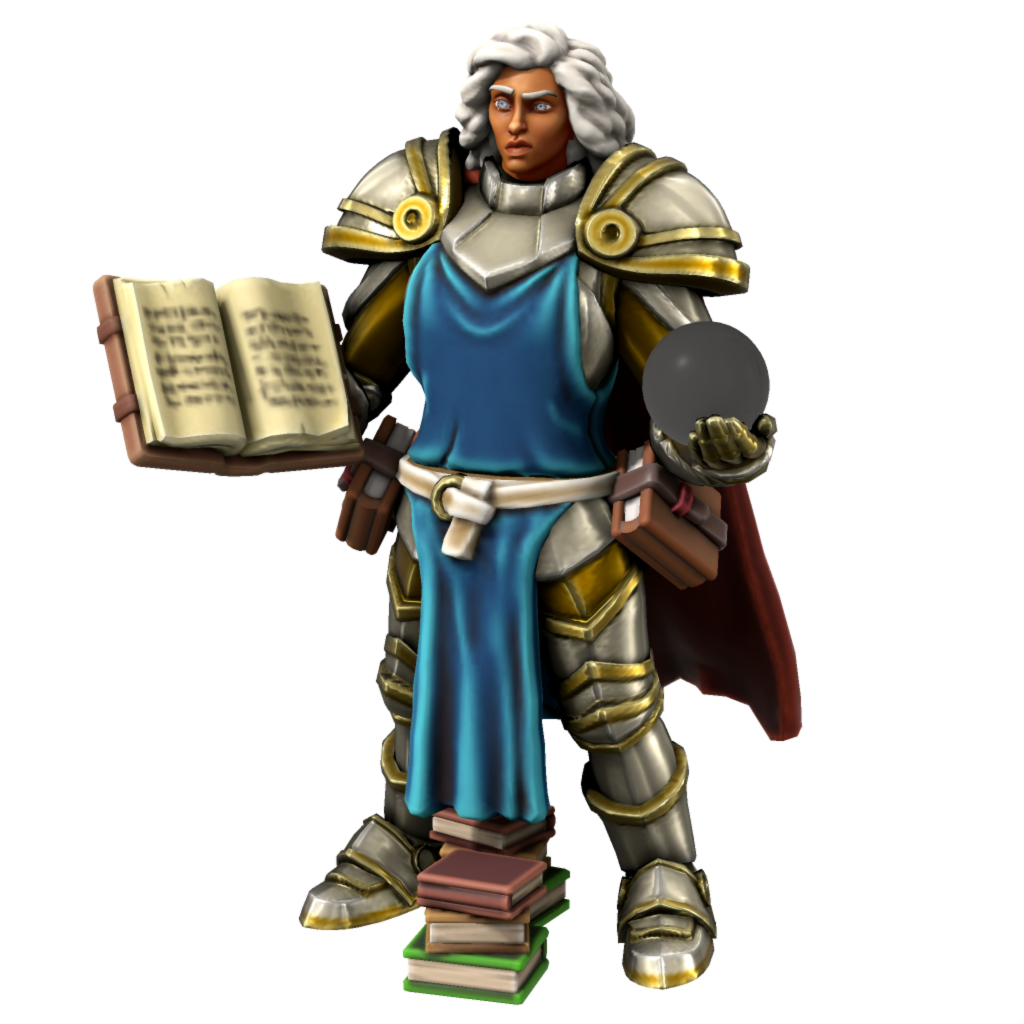
Sia by Jarhed
"Inside of everyone, there is a storm. Leigong granted you that. Yet is a hurricane strongest after already going across an entire coast, or is the storm that strikes instantly and precisely stronger?"
Sia
Sia is the Goddess of Knowledge, Prophecy, and Skill. She has a temple deep in the desert with various trials required to enter.
It is considered something that students of the
Magic College should do, visiting the Temple of Sia, before they graduate. This is because she grants knowledge, which is the entire point of their education. So to even visit her is viewed as a culmination of that.
She also can sometimes give prophecies to those that enter her temple, but more often just tells them things they already know. Sia herself knows everything, past, present, and future. She shares a consciousness with every Sia that exists in every moment so that all of them may know what the others know, which makes her detached from reality more often than not. Her holy text is "
The Tome of Infinite Wisdom" and features the answer to any question. Only her own followers can understand it, and prolonged reading of it is known to drive people mad.
Kadakalan
Kadakalan is the God of Survival and Overabundance. He is the patron of Lizardfolk, as they live in an incredibly hostile land, so they worship Kadakalan for hope of living another day.
The other facet of his worship is overabundance. The Lizardfolk pray for more, to have more than they could ever use of something. Be it food, be it children, be it spouses, the overabundance bleeds into every part of Lizardfolk society as they grow as much food as possible, have as many kids as they can in hope that one will live, and gather harems of multiple spouses so they can make all those children. Kadakalan does not have a holy text, or rather no one has been able to find one in Lizardfolk territory.
Erra
Erra is the God of Famine and the Gourmet. Some consider Erra to be an Evil God, however this is misinterpreting Erra's domain of Famine. Erra is the God who prevents famine, which means that in technicality he rules over it as well. Erra is also patron of the Mishans, the bearfolk of
Moroza, as the icy terrain makes famine incredibly common.
The major group that worships Erra are chefs, who believe in Erra's teachings that when cooking, one must always consider those with less. Those going hungry. For that, the chefs that worship Erra often make large, grand meals so that, at the very least, those that eat the meals they cook will not go hungry. Some even do charity work, bringing food to the poorer regions of their cities or even nations. This is all thanks to the instructions in Erra's holy text, "
The Cook's Book."
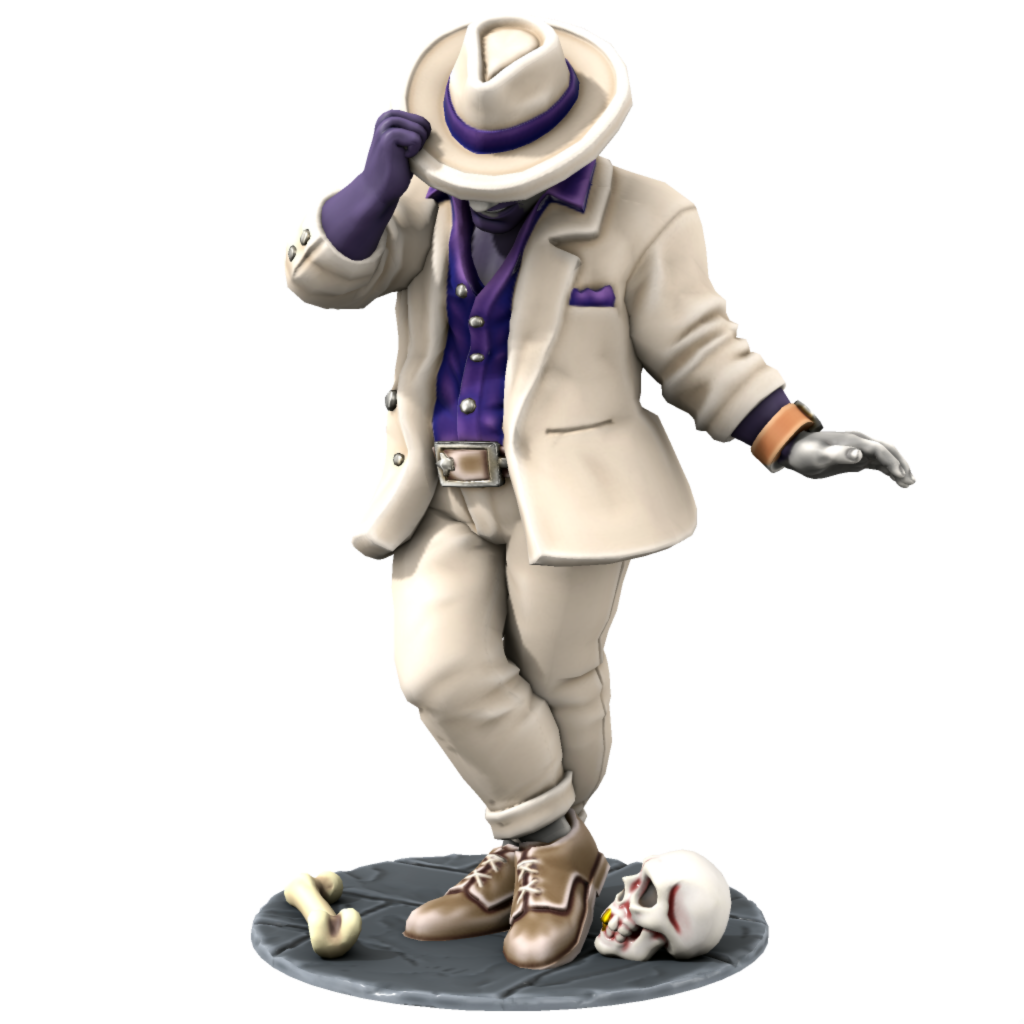
Janus by Jarhed
People pray to Erra if a famine seems to be approaching, which often is done in hope of preventing the famine. Sometimes this has worked, while in others it has still resulted in the same impending disaster.
Janus
Janus is the God of Portals, Duality, and Transitions. He is also patron of Mammen, and is worshipped as the guardian of their peninsula of Ruzrugh, which is a major port that lies on the passage between Southern and Northern Elone.
His domain of portals is not limited just to the typical use, as it also means doors, gates, and other similar contraptions.
But his two most important domains are duality and transitions. Janus teaches in his double covered holy text, "
Jioni" that every person is made up of two separate people: their past self and their future self. He says that only at major points of transition can one see both parts of themselves, at the moment where they are both past and future.
He also controls that domain, of the intermediate period, of the transition itself. With these domains, Janus was able to create a loophole that allowed him and him alone to roam Totania. He created two personas for a man, one a mortal, and the other the God Janus. With this, a dual persona was created, where Janus shares his body with a mortal. Due to the mortal half of him, Janus can walk on Totania like anyone else. But thanks to the God, he is immortal and all powerful. Janus, however, only interferes with individuals at their moments of transition, to ease them from one version of themselves to the next.
Evil Gods
The Evil Gods are high in number, technically having more than the other two groups of Gods. However, this number is often called exaggerated, as two of the Gods do not interfere in Totanian affairs whatsoever, as they are busy with their respective lands of Hell or the Void. There are ten Evil Gods, but of the ones actually represented on Totania, there are eight. These Gods are:
- Helle
- Morrigan
- Tsukuyomi
- Tohil
- Nergal
- Irkalla
- Tartarus
- Mimir
- Satanael
- Chernobog
Helle
Helle is the Goddess of Greed and Envy. She is also the co-Patron of Draconians, as well as the Patron of Chromatic Dragons. She is the most worshipped of the Evil Gods, as many of the Draconian villages worship her, like
Tamd, Evity, and Dembar.
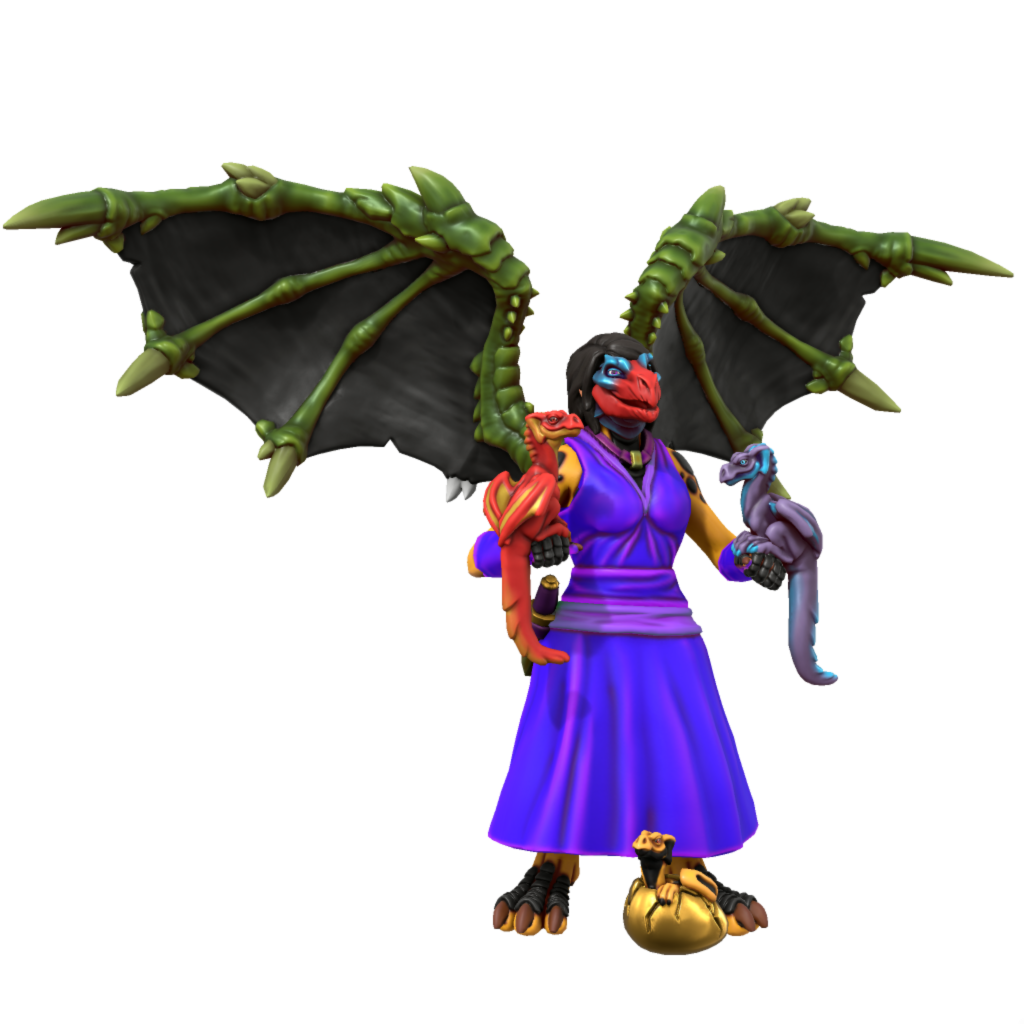
Helle by Jarhed
Helle seeks to gain everything in Totania for herself, and her priests are known to interfere in world events for her own gain. She cares little for her followers, and in turn her followers often worship the concept of her rather than her. She loves this, as it is the perfect definition of her greed as is taught in her holy text "
Gixic" or Claws.
Followers of Helle are often wealthy, or at least seek to one day be wealthy. Helle often clashes with Selene on matters of their own greed and jealousy, with many saying Selene should be evil for it if Helle is, or Helle should be neutral if Selene is. However, there is an important distinction between the two.
Selene is selfish but ultimately preaches good things sometimes, like love. Helle, on the other hand, does no such thing. She believes in herself and herself alone. Everything she and her followers do is in pursuit of a selfish goal.
Morrigan
Morrigan is the Goddess of Death, Fate, and Doom. She is also patron of the Korvians, and thusly does not actually have a true name. Korvian culture is very anti-naming, and therefore they only call her "The Raven Queen" if they call her anything at all. The name Morrigan was found on some ancient artifacts related to her by Mishans, and has been used by most people since.
Morrigan does not often interfere in Totania, as she often sees that death will happen without her. However, she has interfered in some events, like in the events known as
A Dreamless Sleep with the first Human King. Visiting her is a death sentence, not because she kills those that make it to her, but because getting to her is near impossible without dying. If one does meet her, however, they are rewarded with an item with an increased death potential. What this means is it has a higher chance of killing its enemies by homing itself onto "death points." These death points are written about in the holy text of Morrigan known as "
The Unmarked Book."
Tsukuyomi
Tsukuyomi is the God of Poison and the Element of Darkness. He is the brother of Izanagi, and is patron of the snakelike Ophidians.
Tsukuyomi's teachings, from his holy book simply known as "
The Dark Page," speak of not trusting those around you and always having underhanded ways of striking back at anyone around you in the case that they betray you. He says that it isn't really an if, but a when, and swears that no relationship lasts. In Tsukuyomi's book, the end is either death or betrayal, and sometimes both for those not ready. So he teaches his followers to be ready.
Tsukuyomi also says that his followers must immerse themselves in darkness before tragedy happens, for if they immerse themselves in darkness before it hits them, they will be more suited to tragedy when it happens.
Tohil
Tohil is the God of War and Conquest. He is also the patron of Goblins, though in recent years since the arrival of Humanity and the displacement of Goblins from their land, his worship has lessened.
Tohil teaches that his followers must fight wars to gain what they want, and that they can only have happiness when the thing that makes them most happy is fully theirs. Originally, this was interpreted as conquering the world in the name of Tohil, and some Goblins do still believe this.
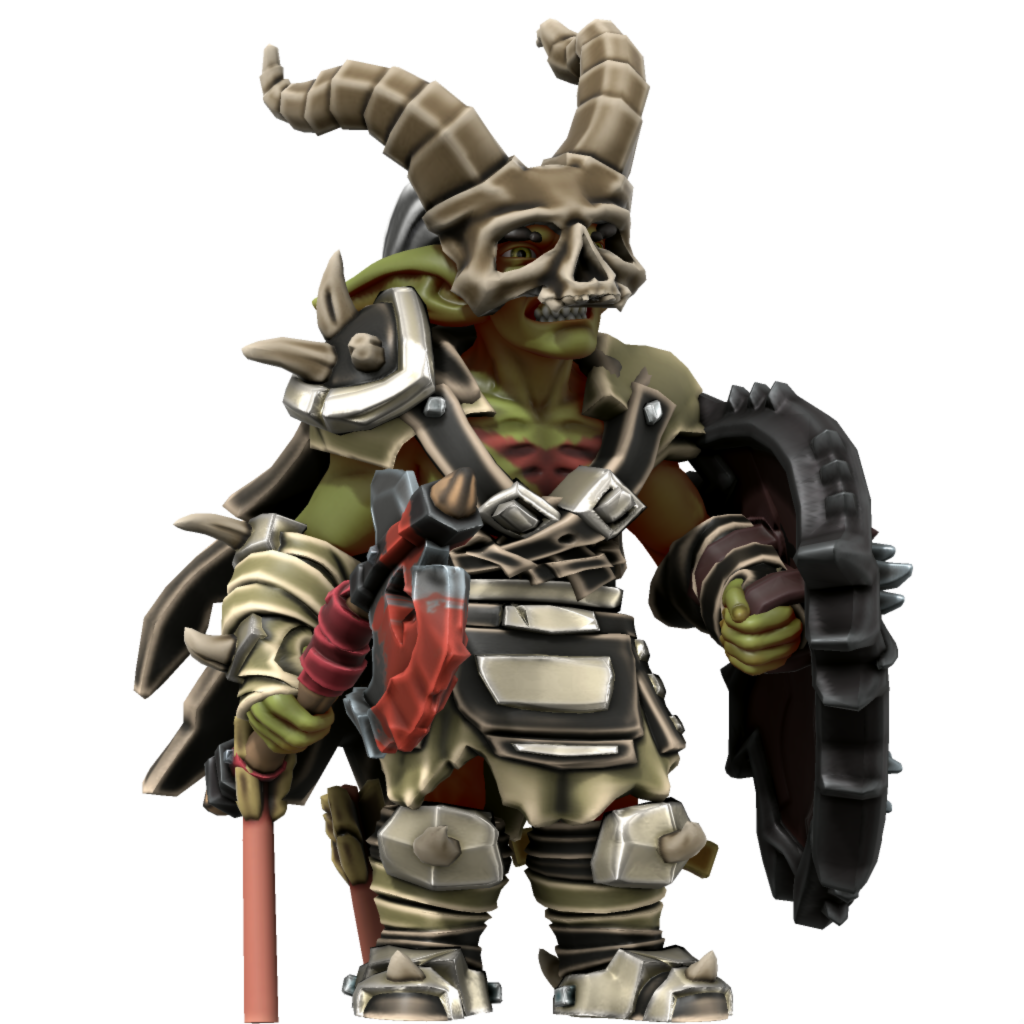
Tohil by Jarhed
However, other Goblins shun these ideas and instead wish to conquer only small amounts of land, enough for them to live on and celebrate their conquest. Tohil's warlike traditions have turned into parties like
Monion Prom, where people compete against each other in all types of physical competitions. It is one of the few celebrations to still honor Tohil as the God of the Goblins.
Nergal
Nergal is the God of Destruction and Slaughter. He is also patron of Orcs, though he is not incredibly worshipped.
The Orcs honor Nergal, but they find it a pain to go through prayers and visit his Temple. Therefore, most Orcs call themselves followers of Nergal, but very few actually follow the written text of "
The Blood Oath." Instead, they at most say small prayers in honor of him before a raid on an enemy settlement.
Nergal worship asks for immense death, and Orcs deliver on this, but often they misinterpret the book as they do not all read very well. Because of this, different versions often say different things, as they have little consistency. Some say that core tenets of Nergal worship is completely contrary to what was originally written, but the Orcs have little desire to change their beliefs even if they are incorrect.
Irkalla
Irkalla is the Goddess of Loss and Pain. For this, she has taken in the Giants and become their patron after the death of the Nameless God.
Irkalla worship is about moving on from grief and loss in any way one can. While this is not inherently evil, Irkalla is considered an Evil Goddess for the simple reason that her teachings not only do not condemn evil actions in the name of grief, but they actually say that it is an understandable reaction for a mortal, and that Irkalla cannot say it is wrong because it is normal.
However, Irkalla worship can also be good, which is why some argue she is a Neutral Goddess. Her holy book, "
Loves Labors Lost" explains that there are many reactions to the loss of a loved one and the pain that follows suit.
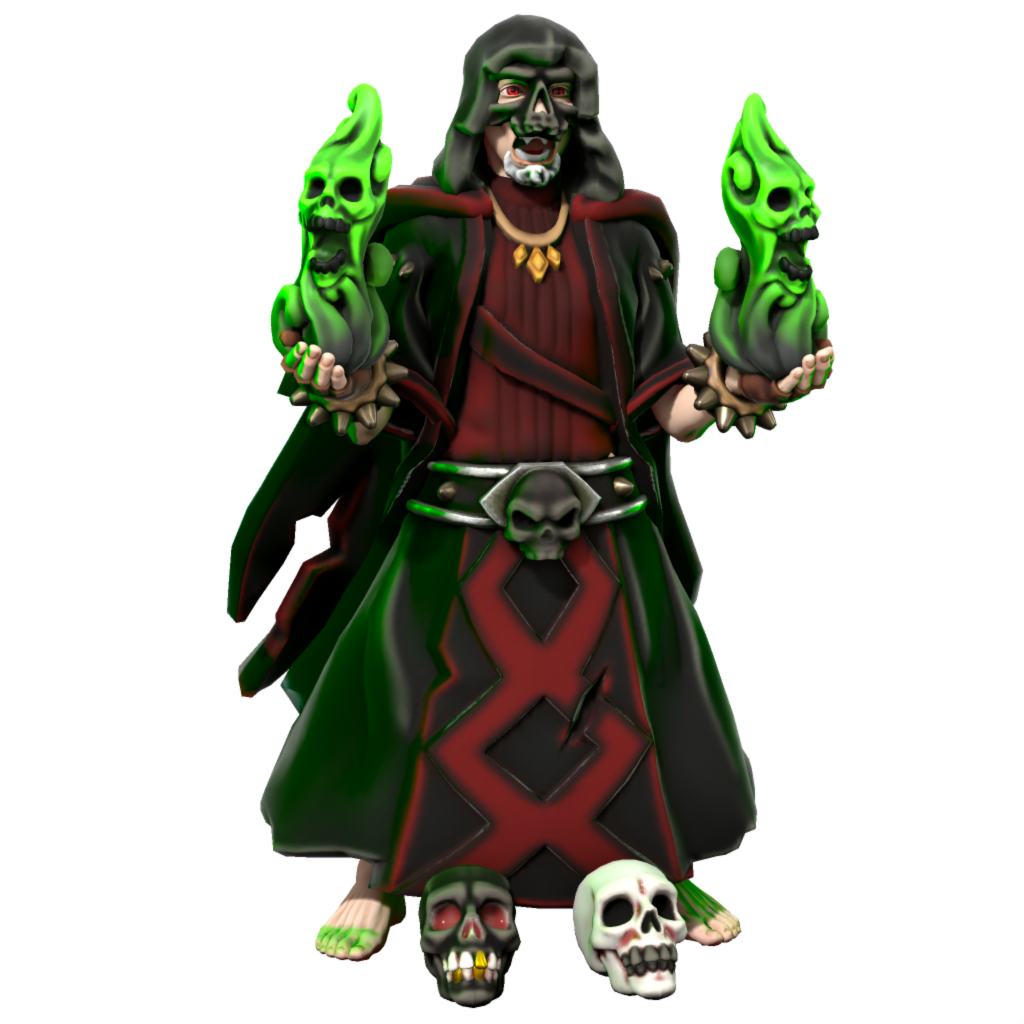
Mimir by Jarhed
"Whether your reaction is to never leave your home, to do the good in the world they could not, or to destroy the world that allowed this to happen to them, I understand. There is no correct answer for grief, and there is no reaction you can have other than the one that comes naturally to you. No matter your reaction, know that you are my child, and I will help you through this."
Mimir
Mimir is the God of Secrets and Necromancy. He is the Patron of Changelings, but very little is known about him other than that.
He keeps many things a secret, including the location of his temple and the extent of his power and follower count. He often sends people out to learn about the world and its goings on, find out secrets and gain knowledge he does not yet have. He is in a battle with Sia to learn about everything Totania has to offer, and while he is currently losing, some do say he has at least one secret that even the Goddess of Knowledge does not know.
Necromancers often revere him, though not all worship him. Some look down on Mimir's methods, but it is tough for them to say that when doing a forbidden art like necromancy, so many end up worshipping him before they die.
Tartarus
Tartarus is God of Jail and Torture. Not much is known about him, as a matter of fact very few try to look into Tartarus as he is seen as not only unsavory but also uninteresting. Part of this is due to his place as patron of the Felids, a group of catfolk that isolate themselves from the rest of the world.
That being said, his Church has been called to help the World Court on some occasions to capture some of the most dangerous criminals they have encounters. Tartarus gladly does so, even torturing these criminals extra as punishment.
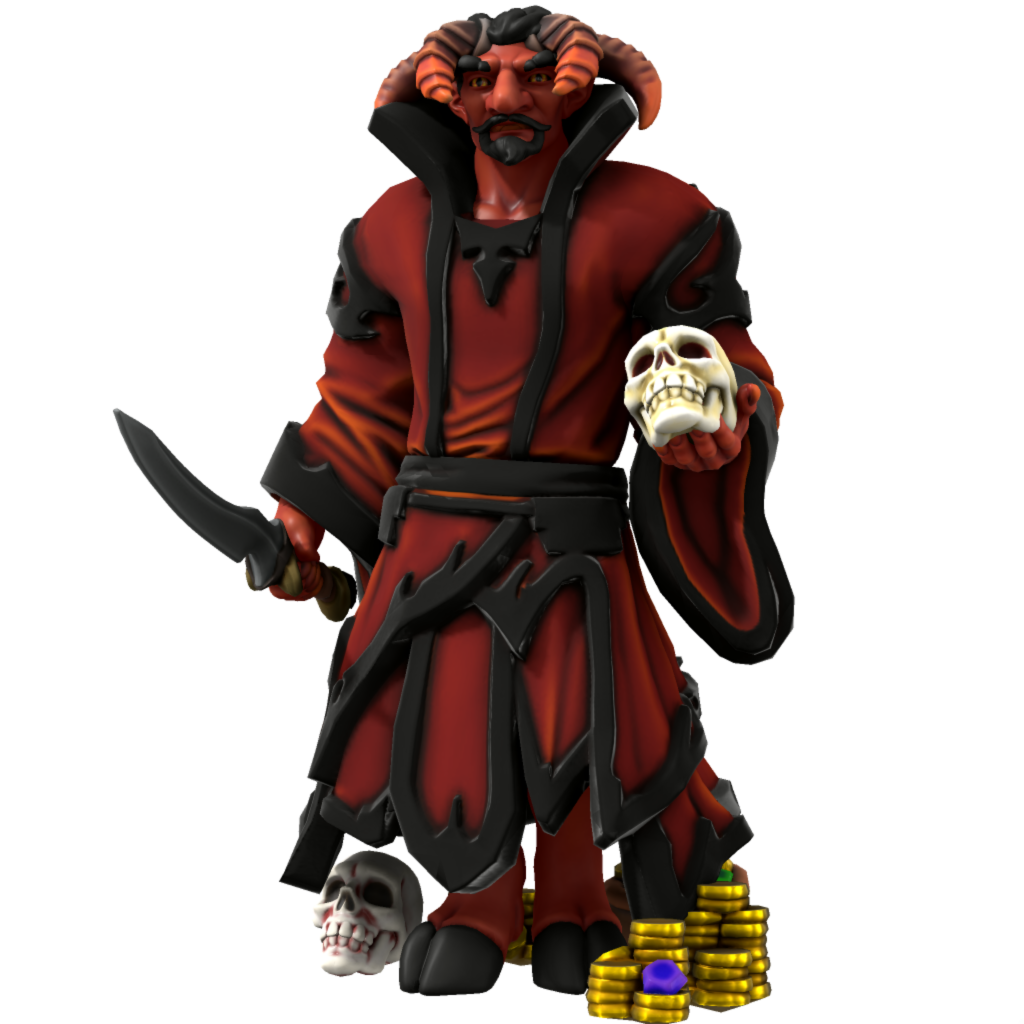
Satanael by Jarhed
Satanael
Satanael is the God of Devils, Bureaucracy, Business, Trade, and the Element of Fire. He is one of the two Gods that do not have any stake on Totania, as he is instead content ruling Hell.
Satanael is a fan of business, and has been stated to be "the largest proponent for capitalism in every realm." He built Hell up as the perfect utopia of this ideal of capitalism, which just happened to include things like torture and damnation.
While Satanael does not personally interfere on Totania, many of his Devilish creations do. One of these is his top Devil,
Profit, known for mass murder and trading soul stocks.
Satanael's main teachings, from his holy text "
Fire and Brimstone and Everything In Between" talk of the best way to run a business and exploit those under you. It also speaks of the value of currency and how it is not exactly true, but value only comes from the public perception of money. This was proven by him turning literal mortal souls into his own form of currency.
Another thing Satanael preaches is that no form of punishment is actually terrible, as it is all atonement for the actions one commits in their life. Satanael uses this to justify his actions and make people more inclined to follow him. Those that follow him are then damned to eternal torture in Hell for simply following him, and they had been led to think that this would not be bad. It is.
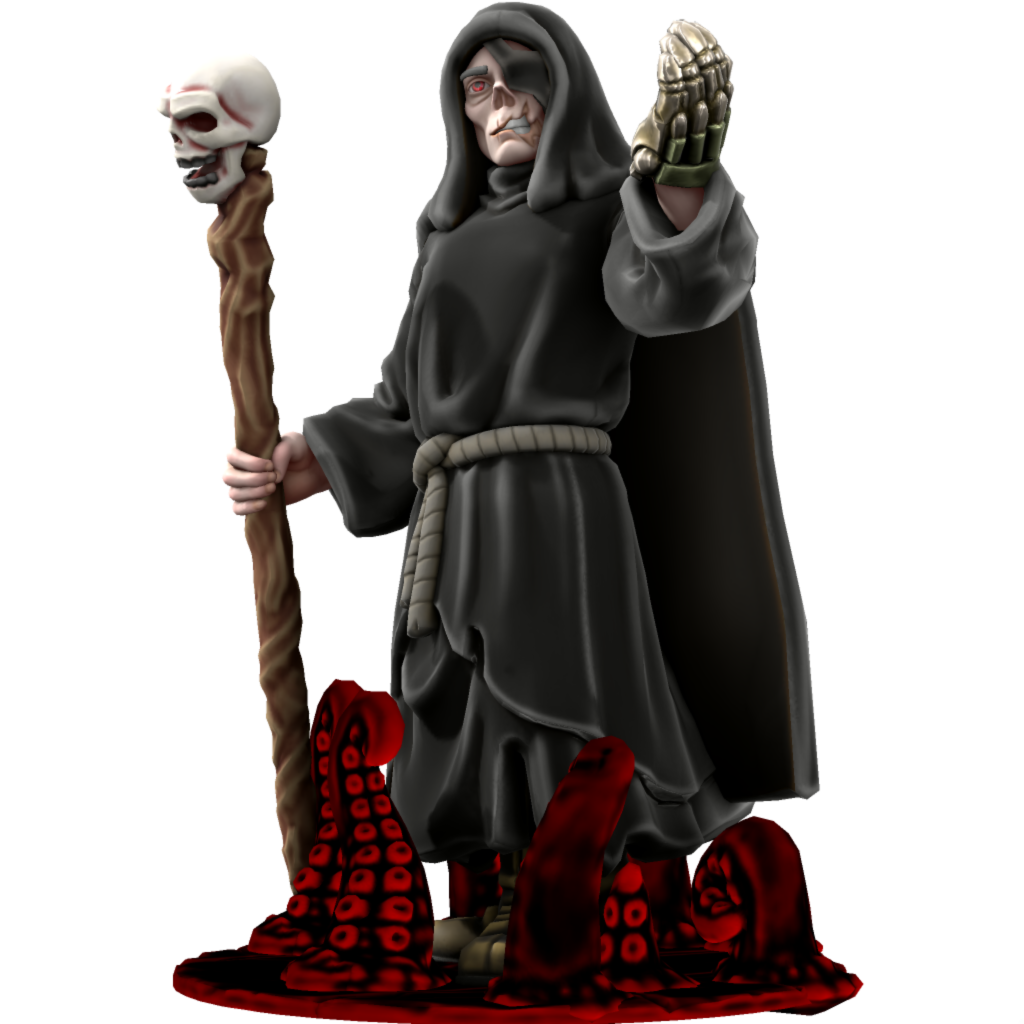
Chernobog by Jarhed
Chernobog
Chernobog is the God of Demons, Tyranny, and Domination. Somehow, these domains have led to the Wolfmen of Moroza worshipping him as their God. But let there be no mistake, there is no good in Chernobog. He is the very definition of evil.
Chernobog rules over the Void, where he sits surrounded by nothing. He does not interfere in Totania, as he has no desire to do so. Instead, Chernobog worships some Gods who mortals are unable to comprehend.
It is believed that the Gods Chernobog worships are the predecessors to the current Gods. Little is known about them, and some believe these are instead just figments of Chernobog's own mind made manifest via his massive magical power.
All that is known is that he does not care for the Gods of Totania nor their creation, he just tries to gain more people from Totania into his Void so that more can worship "His" Gods.

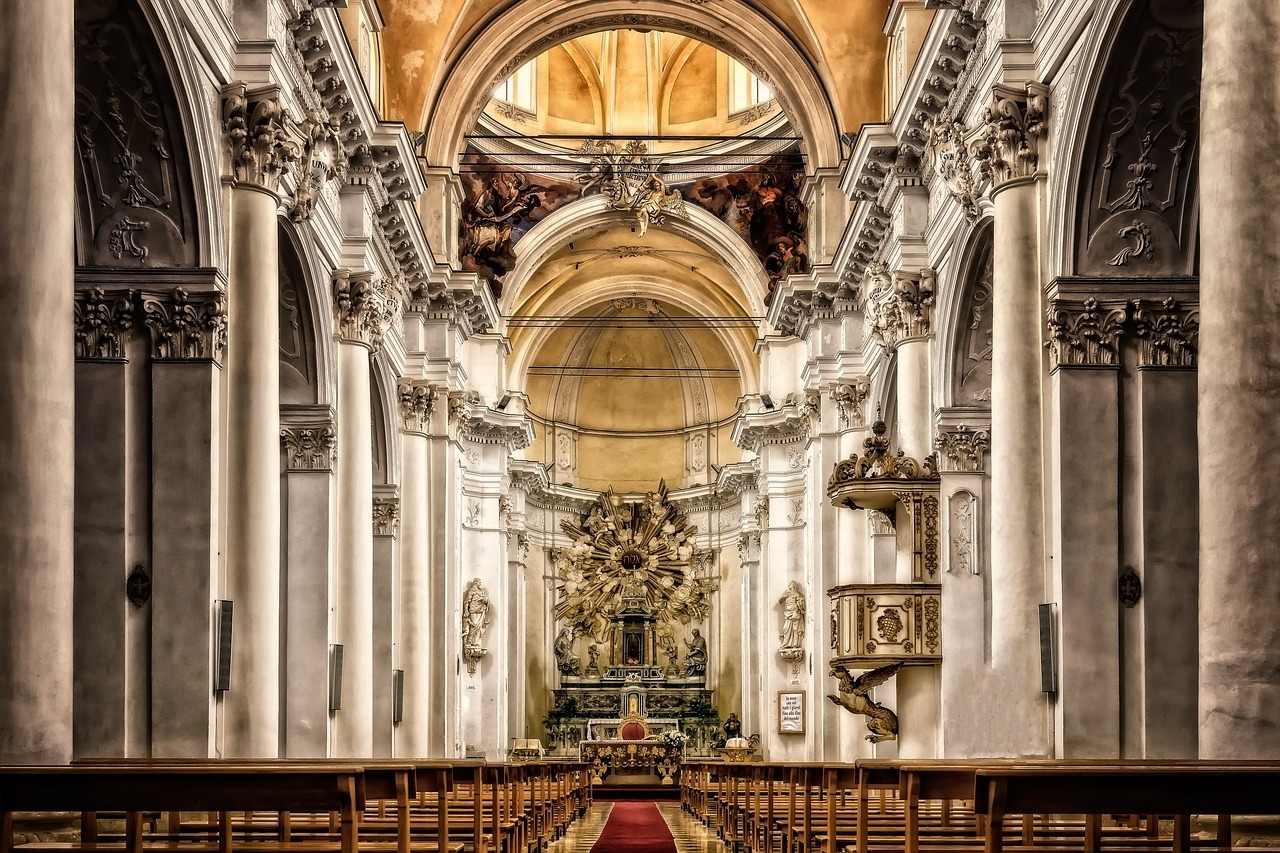
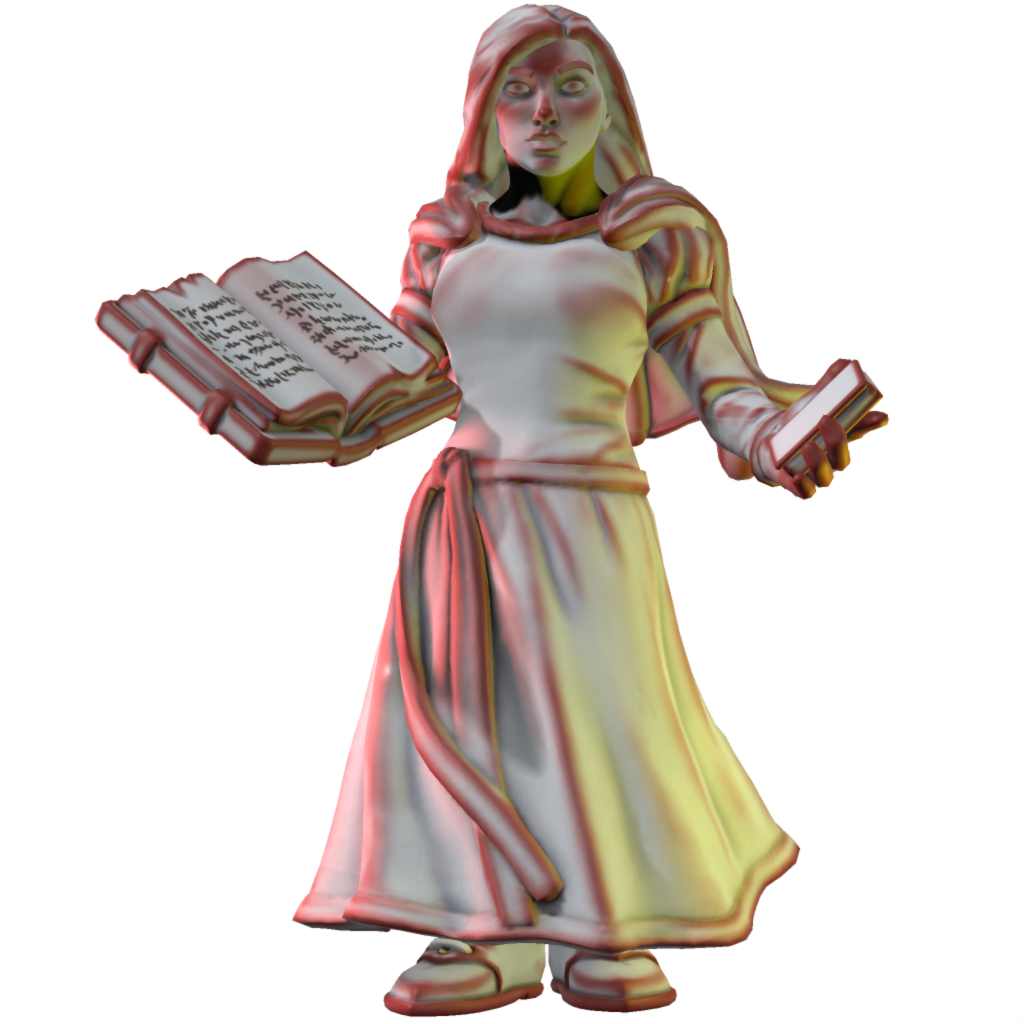
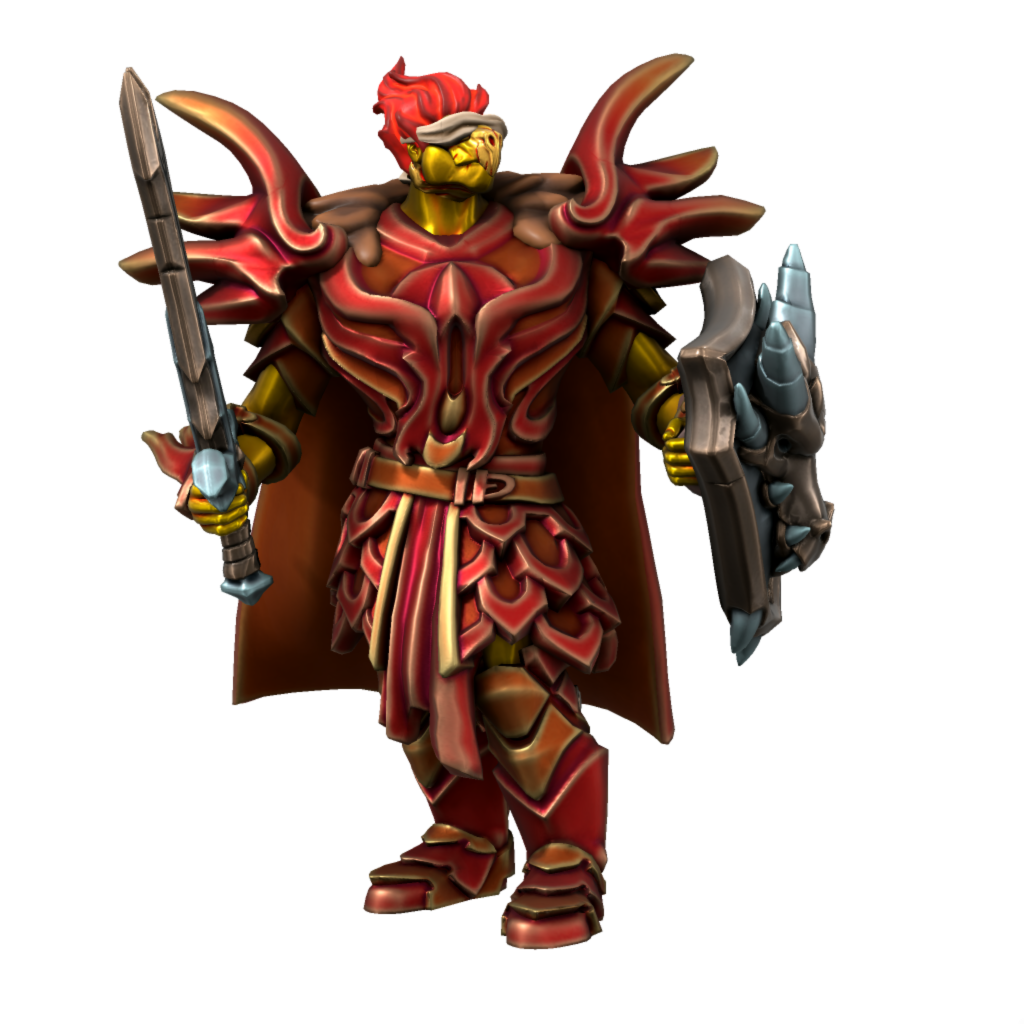
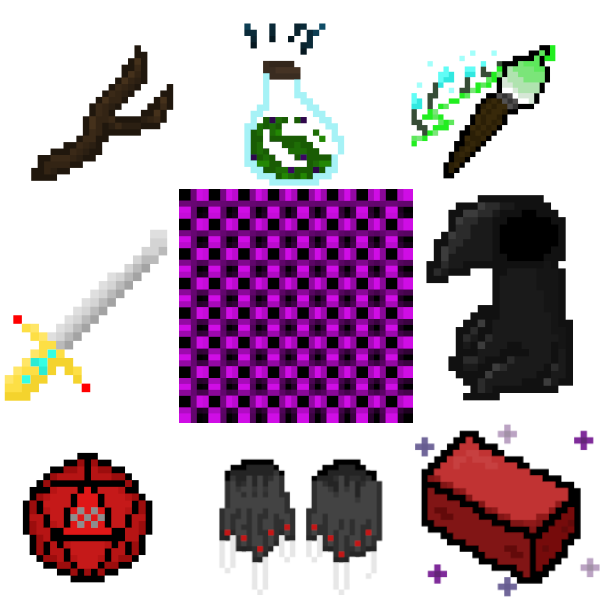











Comments
Author's Notes
A comprehensive list, for quick reference:
Fortuna: Goddess of Luck, Travel, Change, and Air, Patron of Halflings.
Phrixus: God of Justice, Protection, and Nobility, Patron of Draconians.
Hadur: God of Family, Community, Creation, Earth, Patron of Dwarves.
Izanagi: God of the Sun, Agriculture, Time, and Light, Patron of Kamejin.
Mayowa: Goddess of Beauty, Magic, and Art, Patron of Jinn.
Athena: Goddess of Civilization, Invention, and Law, Patron of Humans.
Sia: Goddess of Knowledge, Prophecy, and Skill, Patron of Emetians.
Leigong: God of Battle, Storms, and Strength, Patron of Crocutions.
Papatūānuku: Goddess of Nature and Water, Patron of Nereids.
Morrigan: Goddess of Death, Fate, and Doom, Patron of Korvians.
Selene: Jealous Goddess of Illusion, Love, and the Moon, Patron of Elves.
Satanael: God of Devils, Fire, and Bureaucracy.
Tohil: God of War and Conquest, Patron of Goblins.
Nergal: God of Destruction and Slaughter, Patron of Orcs.
Nyx: Goddess of Shadows and Lies, Patron of Fenns.
Chernobog: God of Demons, Tyranny, and Domination, Patron of Wolfmen.
Helle: Goddess of Greed and Envy, Patron of Draconians.
Tartarus: God of Jail and Torture, Patron of Felids.
Mimir: God of Secrets and Necromancy, Patron of Changelings.
Tsukuyomi: God of Darkness and Poison, Patron of Ophidians.
Amukk: God of Mercy and Beginnings, Patron of Avians.
Ishtar: Goddess of Fertility and Dreams, Patron of Minotaurs.
Irkalla: Goddess of Loss and Pain, Patron of Giants.
Ninatta: Goddess of Poetry, Music, and Festivals, Patron of Gnomes.
Erra: God of Famine and the Gourmet, Patron of Mishans.
Kadaklan: God of Survival and Overabundance, Patron of Lizardfolk.
Janus: God of Portals, Duality, and Transitions, Patron of Mammen.